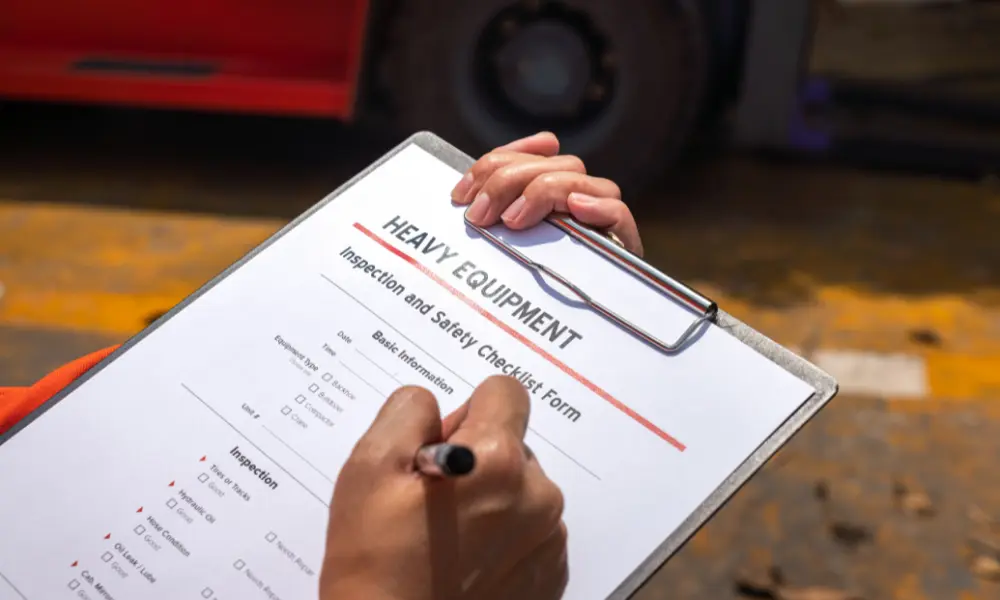Navigating the vehicle inspection requirements in Kentucky might seem tricky, but it’s essential for ensuring your car is roadworthy. While emissions testing is no longer mandatory, vehicles purchased out of state must be inspected for VIN verification. This step will help you keep your car legally compliant. Want to make sure your car passes its next inspection? Keep reading to find out everything you need to know.
Kentucky’s Vehicle Inspection Overview
In Kentucky, vehicle inspections ensure that cars are safe and roadworthy. This process involves checking key safety features and verifying vehicle information to comply with state law.
Purpose and Importance of Inspections
In Kentucky, vehicle inspections are essential for maintaining road safety. These checks help confirm that your car’s safety features, like brakes and lights, are in good working order. This helps reduce the risk of accidents.
Inspections also aim to keep vehicle emissions within acceptable limits. Although the state stopped emissions testing in 2005 due to improved air quality, ensuring that cars do not excessively pollute still matters.
Your car’s VIN is verified during inspections. This ensures that the vehicle matches its records, preventing fraud and theft.
Types of Required Inspections
There are different types of inspections you may encounter. A common check is the vehicle identification number (VIN) check.
Another crucial check involves examining important safety features. For instance, your car’s mileage is recorded, and various parts like brakes and lights are inspected to ensure they function correctly.
Inspections also require proper documentation. You typically need to show your car’s title or a certified copy and your driver’s license.
By following these requirements, you ensure your vehicle complies with Kentucky’s laws and drives safely on the roads.
Preparing for Your Vehicle Inspection
To get your car inspected in Kentucky, you’ll need to bring specific documents, understand the fees, and know where and when the inspections take place. This guide covers all these details.
Documents To Bring
When preparing for a vehicle inspection, make sure you bring the necessary documents. You’ll need the Vehicle Title or a Certified Copy from the County Clerk’s Office. Bring your Driver’s License as well.
If you’re applying for a title, you’ll need the Application for Certificate of Title/Registration Form.
Bringing these documents ensures a smoother inspection process. Without them, you might face delays or need to reschedule. Always double-check what you need to avoid any hassles on inspection day.
Fee Schedule
In Kentucky, the fee for a regular vehicle inspection is $15.00. This fee is required each time you have your car inspected.
For businesses with two or more vehicles, there’s an additional trip fee of $20.00. You can pay these fees with cash, credit, or debit cards. Make sure you have the exact amount if paying in cash, as not all locations may provide change.
Keep in mind that fees might vary slightly by location, so it’s wise to check ahead of time.
Inspection Locations and Hours
Inspections are typically conducted at the Sheriff’s Office or designated inspection centers. Each county might have different locations and hours, so it’s important to verify ahead of time.
Generally, inspections happen during regular business hours, but some locations might have extended hours or specific times for vehicle checks. For instance, Bullitt County Sheriff’s Office offers inspections Monday through Friday.
Be aware that holidays might affect these hours. Always call ahead or check the official website to confirm availability and avoid any inconvenience.
Vehicle Inspection Checklist
To keep your vehicle compliant and safe on Kentucky roads, it’s crucial to regularly check both its external and internal components as well as its mechanical integrity. Here’s a clear checklist to help you with the inspection process.
Exterior Requirements
Your vehicle’s exterior needs to meet several requirements.
1. Windshield and Windows: Ensure there are no cracks or chips that can impair vision.
2. Lights: Check that all headlights, brake lights, turn signals, and rear lights are functioning properly.
3. Mirrors: Make sure all mirrors are present and correctly aligned.
4. License Plate: Confirm that your license plate is securely fastened and clearly visible.
5. Tires: Inspect for proper inflation, sufficient tread depth, and no noticeable damage.
Each of these components is vital for safety and compliance during tests like the Kentucky car inspection.
Interior Safety Checks
The interior of your vehicle also requires thorough inspection to ensure safety.
1. Seat Belts: Check that all seat belts are present and in good working condition.
2. Horn: Test the horn to make sure it is loud and clear.
3. Odometer: Confirm that the odometer is functioning and displaying accurate mileage.
4. Steering Wheel: Make sure the steering wheel functions smoothly without any unusual noises.
5. Dashboard Lights: Verify that all dashboard warning lights are operating correctly in case they need to alert you to a problem.
These checks help ensure your vehicle adheres to Kentucky’s vehicle inspection requirements.
Mechanical Integrity
The mechanical integrity of your vehicle is another critical aspect of the inspection process.
1. Brakes: Review braking performance to ensure that your vehicle stops efficiently and without delay.
2. Steering System: Inspect for responsiveness and check for any unusual sounds which might indicate a problem.
3. Exhaust System: Ensure no leaks or excessive noise, as a faulty exhaust can result in harmful emissions.
4. Suspension: Check the suspension for wear and tear, especially if you notice rough rides.
5. Fluids: Ensure all essential fluids such as oil, brake fluid, and coolant levels are topped off and uncontaminated.
These steps help meet the vehicle inspection standards specific to Kentucky. Regularly following this checklist helps maintain your vehicle’s longevity and ensures compliance with state laws.
Vehicle Inspection Process
You will understand the key steps in Kentucky’s vehicle inspection process, from the initial assessment to the final steps.
Initial Assessment
When you first bring your vehicle in for inspection, a certified vehicle inspector will begin by checking basic requirements. This includes verifying that your car is roadworthy. Key elements such as the windshield, window glass, and wipers need to be in good condition.
The inspector will also check your Vehicle Identification Number (VIN) to ensure that it matches the VIN on your vehicle registration and the certified copy of your title. Additionally, your odometer reading is recorded to verify mileage. Inspection fees vary but typically cost around 15 dollars.
Detailed Inspection Points
The detailed inspection involves a closer look at your vehicle’s functionality and safety features. Your car’s turn signals, headlights, and brake lights must be operational. Windshield wipers are checked to ensure they function correctly for your safety.
Inspectors will examine the tires for adequate tread depth and the brakes for performance. They also scrutinize the exhaust system to make sure there are no leaks or damages. Detailed inspection points ensure that your vehicle complies with Kentucky regulations.
Finalizing the Inspection
After the detailed checks are completed, you will receive a report summarizing the findings. If everything is in order, the inspector will provide you with a receipt confirming that your vehicle has passed the inspection. This receipt is crucial for updating your vehicle registration in Kentucky.
Any issues found will be detailed in the report, and you will need to address them before your vehicle can be fully certified. Fixes might include replacing wipers or repairing glass. Finalizing the inspection with a clean bill of health is essential for lawful driving.
After the Inspection
After completing your vehicle inspection in Kentucky, there are several steps to ensure compliance with state regulations. You will need to manage your inspection certificate, address any failures, and maintain vehicle compliance.
Receiving Your Inspection Certificate
Once your vehicle passes the inspection, you will receive an inspection certificate. This document certifies that your vehicle meets the necessary safety requirements outlined by KRS Chapter 189. This certificate is crucial for obtaining or renewing your Kentucky Title.
Make sure to keep this document safe. You’ll need it when visiting the County Clerk to complete your Kentucky Application for Certificate of Title/Registration Form. The clerk will verify your inspection certificate along with your Vehicle Title to ensure everything is in order.
Addressing Inspection Failures
If your vehicle does not pass the inspection, don’t worry. You will receive a report detailing the failed safety features or other issues. Address each item listed in the report to bring your vehicle up to standards.
Common reasons for failure include issues with brakes, lights, or emissions. Once repairs are made, you will need to schedule a re-inspection. This ensures your vehicle now meets the required safety standards. Correcting these problems promptly will allow you to receive your inspection certificate and complete your Vehicle Title process without delays.
Maintaining Vehicle Compliance
After passing the inspection and securing your Kentucky Title, it’s important to maintain vehicle compliance. Regularly check your vehicle’s safety features such as brakes, lights, and emissions to ensure they remain in good working order.
Staying on top of maintenance helps avoid future inspection failures and ensures your vehicle remains roadworthy. Adhering to KRS Chapter 189 and keeping your Title or Certificate of Origin updated will help you stay compliant with Kentucky regulations. Regular maintenance and periodic inspections will keep your vehicle in top shape.
Special Cases
Certain vehicles in Kentucky have unique inspection rules. These rules apply to salvage and rebuilt vehicles, motorcycles and smaller vehicles, and vehicles that are exempt from inspection.
Salvage and Rebuilt Vehicles
If your vehicle has been issued a salvage title, it must undergo a special inspection before it can be considered roadworthy again. To do this, a certified vehicle inspector checks if your vehicle complies with Kentucky Law, ensuring it meets all safety and equipment standards.
To start the process, you need to present the vehicle title, a salvage title, and proof of completed repairs. The inspector will then issue a certificate of inspection if the vehicle meets all requirements. This is essential under House Bill 833 to protect both you and others on the road.
Motorcycles and Smaller Vehicles
For motorcycles and smaller vehicles, the rules are a bit different. You still need to meet certain safety standards laid out by Kentucky Law. However, there are fewer components to check compared to larger vehicles.
Ensure your motorcycle has functioning lights, brakes, and other basic safety features. Although Kentucky does not require annual inspections for motorcycles, keeping your vehicle in good condition is crucial for safety. Regular self-inspections can help you avoid potential fines and ensure your ride is safe.
Vehicles Exempt from Inspection
Not all vehicles in Kentucky need to go through the same inspection process. Generally, newer vehicles, classic cars older than 25 years, and military vehicles may be exempt from regular safety inspections. This policy aims to reduce the burden on owners of low-risk vehicles.
For these exemptions, you usually only need to provide the vehicle title and proof of ownership. Check specific exemptions on official Kentucky DMV pages to confirm if your vehicle is eligible. Understanding these exemptions can save you time and hassle.















